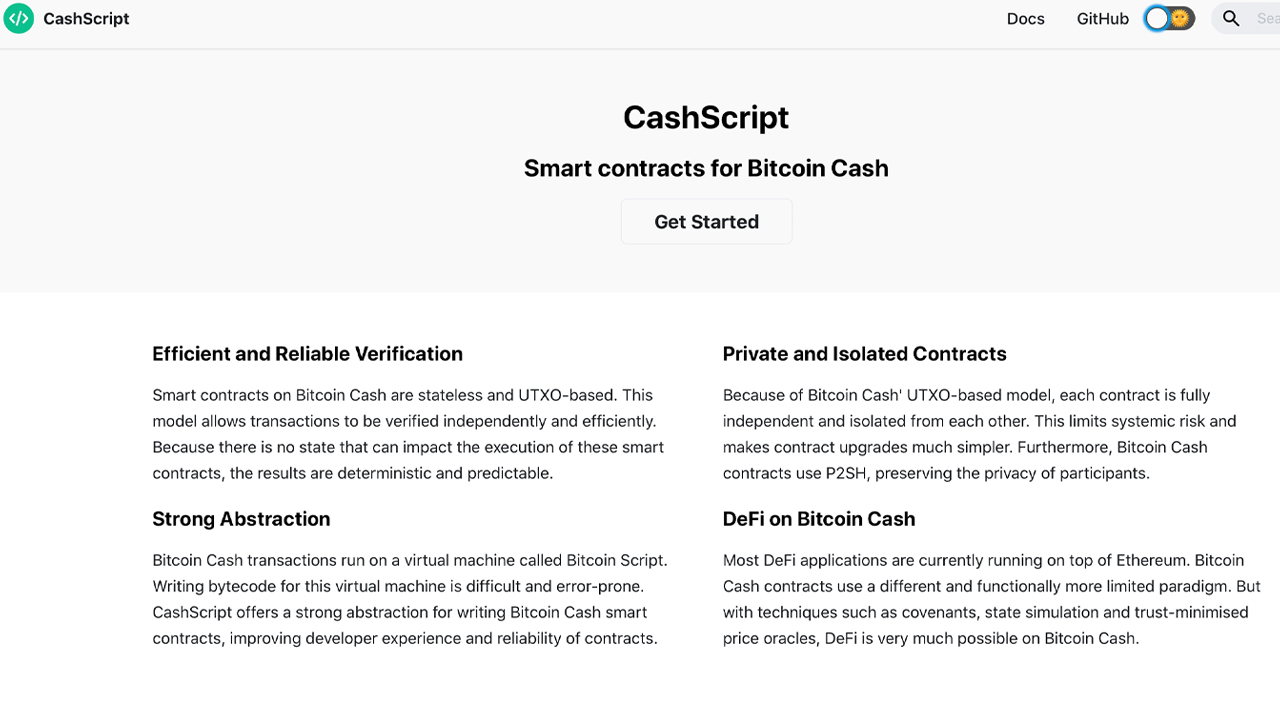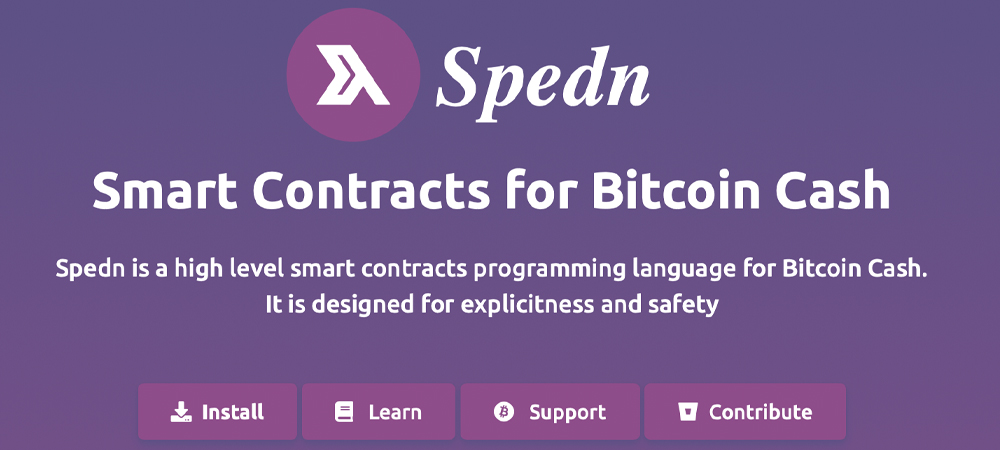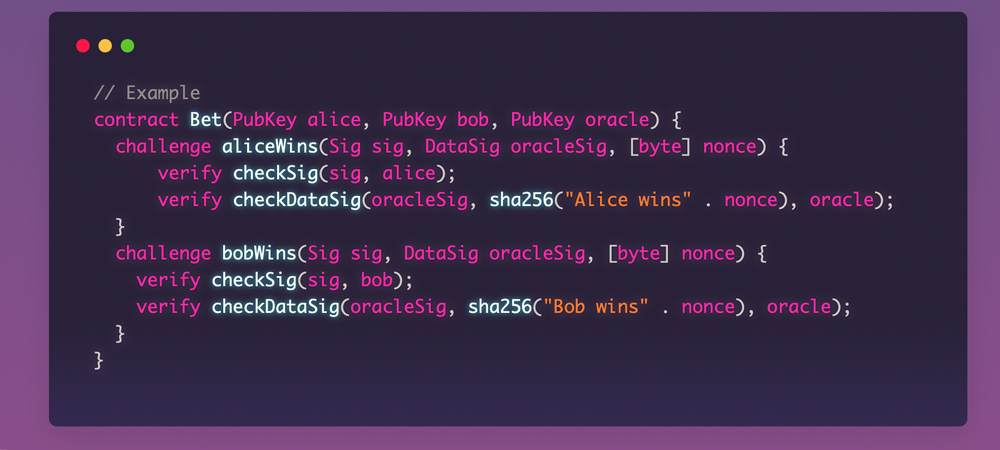[ad_1]


Last May, the software developer and creator of revoke.cash, Rosco Kalis, released Cashscript version 0.4 that included a number of optimizations. Cashscript’s new website highlights the high-level language that “offers a strong abstraction layer over Bitcoin Cash’ native virtual machine, Bitcoin Script.” Additionally, the developer Tendo Pein recently announced the “high-level smart contracts programming language for Bitcoin Cash” called Spedn now has a new website.
Cashscript Version 0.4.3 and Cashscript.org
Rosco Kalis is a software developer who is involved with a number of different cryptocurrency projects. For instance, Kalis created revoke.cash, a platform that allows people to inspect certain decentralized app (dapp) contracts that they approved to spend ERC20 tokens in the past. The tool provides people with the ability to revoke access for the ones they no longer need.
Kalis is also a software engineer for the General Protocols team and he’s contributing to the Anyhedge project. Moreover, Kalis has also been working on a high-level language for Bitcoin Cash called Cashscript. Our newsdesk spoke with Kalis in May 2019 when he told our readers about the Software Development Kit (SDK) and the syntax of the language which was inspired by Ethereum’s programming language. A year later, Kalis revealed Cashscript version 0.4 on May 25 and a new website called cashscript.org.

On July 10, Kalis released Cashscript version 0.4.3, “which includes some smaller bytecode optimisations,” according to the developer. The initial release of Cashscript version 0.4 came with Bitwise operators, Variable size NUM2BIN, a Fluent Transaction interface, Manual UTXO selection, among other improvements. The website cashscript.org’s about section says:
Cashscript is a high-level programming language for smart contracts on Bitcoin Cash. It offers a strong abstraction layer over Bitcoin Cash’ native virtual machine, Bitcoin Script. Its syntax is based on Ethereum’s smart contract language Solidity, but its functionality is very different since smart contracts on Bitcoin Cash differ greatly from smart contracts on Ethereum.
The High-Level Programming Language Spedn Has a New Homepage
In addition to Kalis’s recent 0.4.3 release on July 6, the software developer, Tendo Pein, explained that the high-level programming language Spedn now has a new website. “Spedn has got a new homepage: spedn.pl,” Pein tweeted.
News.Bitcoin.com reported on the Spedn project on October 25, 2018. The sleek new purple colored website explains that Spedn is a “high-level smart contracts programming language for Bitcoin Cash designed for explicitness and safety.”

The website notes that Spedn offers static typechecking, which offers the detection of many errors at compile time. Pure functions that are free of side effects, the common source of bugs. Explicitness, which means no guessing what the expression is supposed to return and Curly braces which is similar to C#, Dart, or Rust.

Spedn is also used by the General Protocols team, Flipstarter, Karol Trzeszczkowski’s recurring-payment Electron Cash plugin, the mistcoin project, and the synthetic derivatives Anyhedge concept.


Both programming language projects are very meaningful to the Bitcoin Cash ecosystem and BCH supporters look forward to projects that leverage them. Right now these projects are offer insight into the start of the fascinating world that can happen with Bitcoin script and onchain contracts.
Additionally, Rosco Kalis has published a comprehensive analysis in regard to the vast difference between the Turing-complete smart contracts offered on Ethereum, and the contract capabilities using Bitcoin script.
What do you think about Cashscript and Spedn? Let us know what you think about these Bitcoin Cash programming languages in the comments below.
Image Credits: Shutterstock, Pixabay, Wiki Commons
Disclaimer: This article is for informational purposes only. It is not a direct offer or solicitation of an offer to buy or sell, or a recommendation or endorsement of any products, services, or companies. Bitcoin.com does not provide investment, tax, legal, or accounting advice. Neither the company nor the author is responsible, directly or indirectly, for any damage or loss caused or alleged to be caused by or in connection with the use of or reliance on any content, goods or services mentioned in this article.
[ad_2]
Source link




